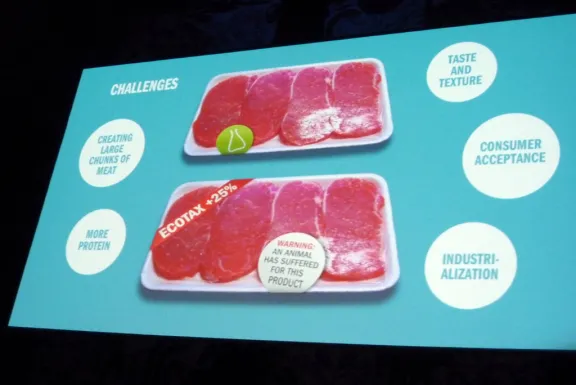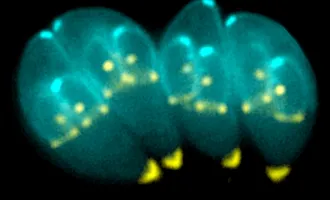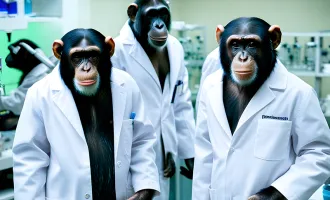
Meat the Future
As humanity’s population swells, the environmental conservation movement in the 21st century is increasingly dependent on our ability to develop more efficient techniques in food production. The advancement of lab-grown meats will play an essential role in meeting this demand.
Cattle emit methane in massive quantities, furthering the concentration of greenhouse gases in the atmosphere. Vast amounts of land are dedicated to raising these and other forms livestock as well as the food that sustains them.
Together, these animals eat a billion tons, or more than 30%, of the plant material we generate per year, according to an article in the science journal Nature. By transitioning to artificial meats, nearly a third of agricultural land in use could be returned to nature.
There are also the obvious ethical concerns which large-scale meat production raises. Every lab-grown patty eaten means the mistreatment of one less animal. As cheap meat is eventually replaced by even cheaper lab meats, the remaining farms raising livestock may become more humane, focusing on premium free-range ‘farm-grown” meats.
Artificial meats are still not quite ready for widespread public consumption, although the technology is just on the horizon. Past attempts, such as the ‘‘Impossible Burger,” were centered around creating meat substitutes from plant material such as wheat or soy. These approaches did not garner the appeal their creators hoped.
New techniques, however, solve a fundamental issue with these prior attempts — they are made from animal cells, not plant. Theoretically, this will lead to more realistic tasting substitutes.
Startups such as Memphis Meats, based here in the Bay Area, are focused on manipulating muscle stem cells from the animal meat they are attempting to recreate, growing new tissue in the lab. These products have the potential to alleviate harm to nearly every threatened aspect of the environment.
Despite these positives, there is still a vocal opposition movement to artificial meats, who consider them “frankenfoods” unsafe for human consumption. The foundation of this movement is born from the controversy surrounding GMO foods, as both technologies share certain intuitive characteristics.
Much of the vehement anti-GMO movement lacks a fundamental understanding of the science behind human nutrition and biology. In fact, the scientific community has reached a consensus; there is no evidence GMO foods pose greater inherent dangers to human health than other food sources.
Recently, Dr. Stefaan Blancke and a collection of other scientists published a study exploring why people are so drawn to the notion of dangerous GMO foods. They propose that the idea appeals to many of the innate fears left over from our ancestral environment.
During our evolutionary history, humans developed hair-trigger psychological aversions to those dangers that were most common around us. These fears may no longer be advantageous in our very different modern world. Blancke illustrates this phenomenon with a potent example: “People are more easily scared by spiders than by cars, although in modern society the number of mortal car accidents is much higher.”
This is especially true for food. The disgust reaction in humans is strong, as it evolved to minimize risk of illness. It applies to scenarios even where it is irrational — for example, we still exhibit a powerful disgust response to perfectly normal biscuits shaped like feces.
For those against artificial meats, manipulating foods in a lab invokes an image of contamination of the originally pure product. When viewed this way, it is no wonder that some experience a powerful disgust response.
Yet this should not be an excuse. We need to educate the public and especially youth on the facts of artificial meats and science in general. As with other major issues plaguing modern American culture, such as climate change denial and anti-vaxxers, scientific literacy and trust in the scientific method is essential for our planet’s continued health.
The answer to excessive meat consumption is not global vegetarianism or veganism. This is not only unrealistic, but also unfair to those living in developing countries who depend on animal-derived food to survive. As artificial meats emerge on the market, it is a conservationist’s responsibility to support these products’ mission, rather than wholly condemning them in favor of more unsustainable, “natural” practices.
Although artificial meats have not yet become indistinguishable to farm-grown sources, the vision of improvements in the environment, consumer’s lives, and business profits indicates rapid development just around the corner.



